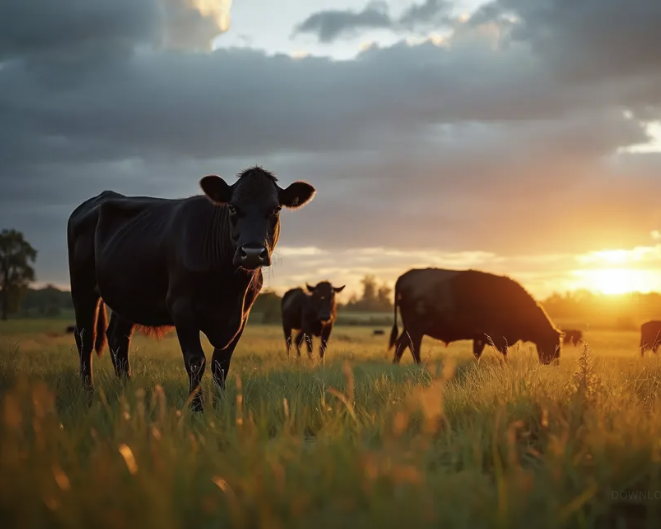Editor’s Note: In the spirit of the approaching new year and its opportunity for resolutions and personal change, this poem explores the poet’s journey toward self-acceptance and happiness.
This is the last poem from Spy Poetry for the foreseeable future until more funding is available. Thank you for being such careful and appreciative readers. I wish you joy in the year ahead and hope that your purse is always full.
In This Brief World
The last time I saw you, you were leaning on a pasture fence
as the sun went down, watching the Angus
gather for the night.
Were you storing up earthly images, as the Pharaohs stored food,
jewelry, and perfumes to take with them into the afterlife?
I, too, had been collecting.
My purse was heavy with life’s stones—sadness and guilt, the regret
of things undone, unspoken, the cumulative sorrows
of consequence. But I am not the person
I was, who thought that living was a quid pro quo—one ounce
of happiness for every pound of sorrow. Now I see
what one carries
is a matter of choice. I choose to carry things that are light—
the relief of self-acceptance, the feathery down of forgiveness,
whispy cirrus clouds
of momentary joy. I’ll walk through what’s left of my earthly time
spreading seeds of solace in sorrow’s soil, hoping they take root
and grow. You asked me, once,
when you knew you were dying, what it takes to be happy
in this brief world. A purse that’s full, I said,
but weighs nothing.
Deidra Greenleaf Allan has been published in American Poetry Review, Quartet Journal, Puerto del Sol, Poet Lore, Plume, and West Branch, among other print and online journals. In 2001 she was selected by Robert Hass as Montgomery County (PA) Poet Laureate. She has received a Leeway Emerging Artist Award and was a finalist for a Pew Fellowship in poetry. Her poem, “Apostrophe to the Living,” was selected in 2012 by Musehouse as its Poem of Hope poster. Allan holds an MFA in Poetry from the Vermont College of Fine Arts. Her chapbook, Each the Other’s Echo, will be published in early 2026 by Seven Kitchens Press.

